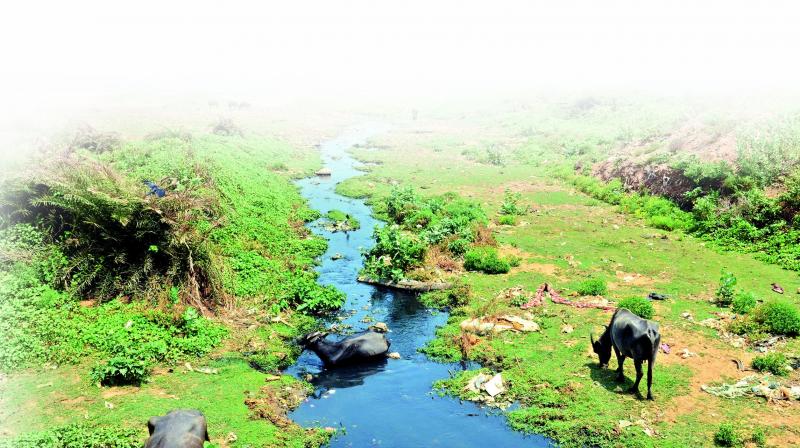Visakhapatnam: Pollution of sea poses danger to marine life
Experts warn of spread of dead zone from pollution.

VISAKHAPATNAM: The 60,000 sq. km. dead zone, which was discovered in Bay of Bengal a couple of years ago, is supposed to expand further due to high amount of chemicals, fertilisers and pollutants dissolving in the sea.
Environmentalists have raised concerns over marine life getting disappeared from the area.
According to global scientists, there are more than 450 dead zones in the world. The dead zones are low-oxygen water bodies within marine ecosystem where life cannot exist. Excessive nutrient pollution and other factors deplete the oxygen content in the water. This leads to mass mortality of fish and marine animals.
With the formation of a dead zone in Bay of Bengal, Sri Lanka’s Marine Environment Protection Authority has recently urged the neighbouring countries to frame stringent laws against marine pollution.
However, no laws were enacted by the Indian government to curb industrial waste from entering into the sea.
Not much research was conducted on the existing dead zone.
Dr Babu Rao Kalapala, Retired Chief Scientist of the Indian Institute of Chemical Technology, sa-id that the fertiliser run off from Godavari and Krishna river basins might have led to the dead zone formation near Andhra coast. Other reasons include chemicals, oil spill and sewage waste into sea.
“Sea is not a dustbin to throw off all unwanted stuff into it. Coastal cities let the drainage flow into the sea. Most of the times, industrial effluents contaminate the sea water. The aqua life gets disturbed with water pollution. Strict rules must be framed by the government for releasing waste into the sea water,” he said.
Expressing similar views, Indian Institute of Petroleum and Energy (IIPE) firector V.S.R.K. Prasad said: “There are several habitations under the sea that get badly affected after the pollutants accumulate in certain areas. Instead of discharging the industrial effluents into the sea, the waste shall be converted into energy.”
Apart from marine pollution, the scientists consider fertiliser run off, eutrophication and ballast water pollution as other reasons for the formation of dead zone. Andhra University former Zoology Professor D.E. Babu explained eutrophication as excessive richness of nutrients dissolving in the sea water that depletes the oxygen to diffuse.
“This is a major concern as the fishes either die or migrate to other areas in search of food. When nitrogen fertilisers are pumped into sea, harmful species of algae will be produced near shore water. Ballast water discharges by foreign ships will also create an impact on the marine environment. The discharge of ballast water by the ships must be governed globally,” he added.

